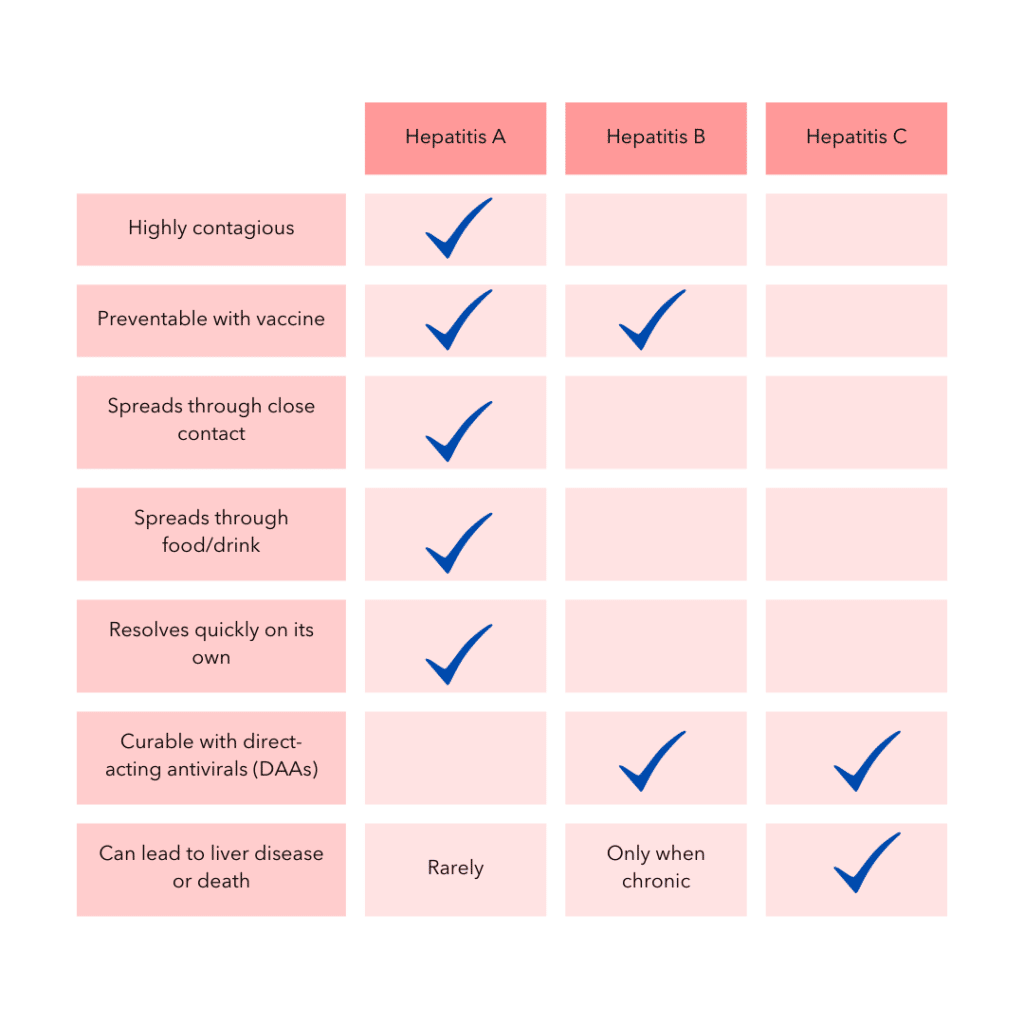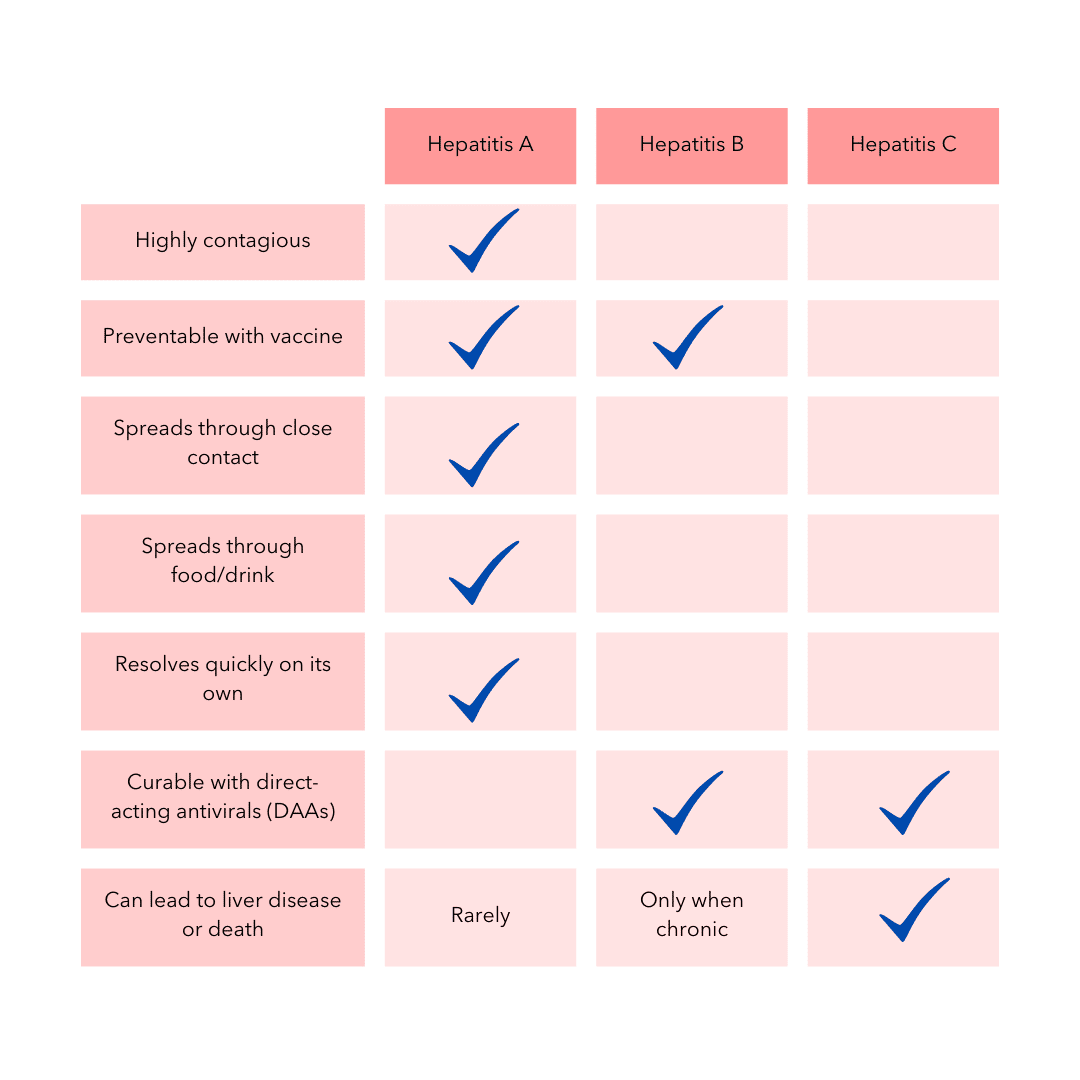Hepatitis comes in three different forms and while they may present the same way, there are several important distinctions regarding how they affect a person and how they can be treated. This is everything you need to know about the individual diagnosis and treatment of hepatitis A, B, and C.
What is Hepatitis?
Hepatitis is a viral disease that causes inflammation of the liver. The liver’s main job is filtering your blood and fighting infections, which can make hepatitis dangerous (depending on the type). There are three common types of hepatitis, all caused by the same virus: A, B, and C. Substance abuse, certain medications, and certain medical conditions can also make a person more at risk of developing hepatitis.
Hepatitis Symptoms
Although many people with viral hepatitis never have symptoms, there are a few complications that can occur. Fatigue, fever, nausea, loss of appetite, dark-colored urine, light stool, stomach pain, and jaundice (yellowing of the skin) are all possible symptoms. These can develop with all types of hepatitis. About 68% of individuals with chronic hepatitis B do not know they have this condition because symptoms do not always present.
Key Differences Between Hepatitis A, B, and C
Hepatitis A, B, and C are all found in the blood and can be spread through contact with an infected person’s blood, either directly or through a needle. Contagion through the blood and bodily fluids also means that a mother can pass down any form of the virus to her child and the virus is spread through sexual contact. However, some versions of the hepatitis virus are more contagious than others and different versions affect the body differently.

Who Should Be Vaccinated Against Hepatitis A and B?
There is no vaccine for hepatitis C, but there are vaccines for both hepatitis A and B. Hepatitis B poses more severe risks so everyone should be vaccinated against it. People who should receive the hepatitis A vaccine fall include the following
- Children aged 12-23 months
- Unvaccinated children under the age of 19
- People with liver problems or HIV
- IV drug users
- Those who have had sexual partners with hepatitis A or B
- International travelers
Who Should Get Tested for Hepatitis C?
There is no vaccine available for hepatitis C which is why the CDC (Center for Disease Control and Prevention) recommends all women to get a screening during each pregnancy. Testing is especially recommended for people with HIV, past or current IV drug users, people with liver problems, healthcare personnel, people who have had transfusions or organ transplants, and women born to mothers with hepatitis C.
Health Services at Carnegie Women’s Health
If you are concerned about your risk of having hepatitis or are interested in other healthcare services as you prepare for pregnancy, schedule an appointment at Carnegie Women’s Health. We can recommend a blood test or hepatitis C screening and will make sure that you receive the necessary treatment(s) to maintain your health.

